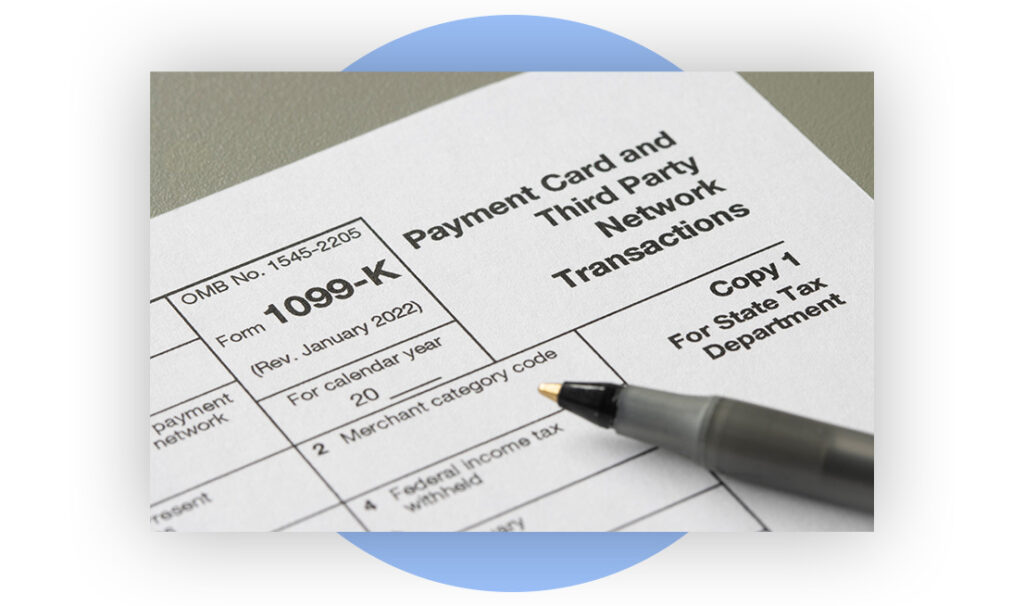As of January 1, 2022, mobile payment apps (Venmo, PayPal, Cash App etc.) will have to report transactions of more than $600 to the IRS (Internal Revenue Service). The change is considered drastic by many users, as the previous threshold was 200 commercial transactions of more than $20,000 in total value.
A payment settlement entity (PSE) must send their users a 1099-K Payment Card and Third-Party Network Transactions Form, either via snail mail or electronically. The measure will impact 2022 tax returns filed in 2023.
If you sold goods or services and received money via Venmo, PayPal, Cash Pay, Square, Stripe, even Ebay and Etsy, you’ll have to report the income to the IRS via the 1099-K form.
As expected, many taxpayers who are using these apps to manage payments from family and friends as well (not only business-related transactions) are confused and worried.
In this article we’ll try to explain what this “$600 tax rule” means and how we manage this with our Finli users
How Does the New Cash App Tax Reporting for Payments $600 or More Impact Us?
Many of our customers ask us if this means a new tax for using online payment apps.
NO! This law doesn’t change the existing tax law, it just requires reporting of the income generated by using payment apps for transactions over $600 in total volume per year, down dramatically from the 2021 reportable limit of $20,000 .
The Form 1099-K is INFORMATIONAL and, if you received money that is not classified as taxable, you won’t have to report this income in your tax return.
Examples:
- money sent by your roommate to cover their part of the rent;
- money sent by friends, if you pick the tab at a restaurant and they still want to cover their expense;
- money you received as a gift (in many families it’s customary for parents or relatives to give money at special occasions. And due to convenience, such transactions are now made via Venmo or CashApp).;
- money you received as a reimbursement;
- money earned if you sold an item at A LOSS (maybe you sell an used pair of sneakers on Ebay and, since you are not making a profit, this income is considered non-taxable). Clearly, if you do run a side-hustle selling items on Ebay and Etsy, this is a completely different story.
Is the IRS Taxing Money You Send to Family and Friends?
No. However confusing and scary the new rule seems, you are still free to send money gifts to family or split the restaurant tab with your friends, without getting into any extra-taxing trouble.
What’s the Payment App Companies and Banks Response?
Having to send 1099-K forms to any user who earned more than $600 using their payment apps is giving these network operators an additional headache, as they will need to request information about SSNs and EINs (in case of small businesses). These all mean more “manpower” and also increased risks of data breaches.
Banks themselves are not happy either, as the new reporting requirements will impact their overhead. While the raw data exists in the systems, complying with the new rule will drive up their costs and this will result in even bigger fees being passed along to clients.
Another undesired result: some customers might stop using these payment systems and banks, not wanting “Big Brother” to know all their financial moves. Moving the threshold from $20K to $600 for income reporting is clearly a drastic change, although there are voices claiming it might go up to $10K.
Etsy, Ebay, Poshmark and few other similar companies created the Coalition for 1099-K Fairness, to try combat these new rules, as they are deemed catastrophic for people who are trying to build a side-hustle. After the devastating effect of COVID-19 lockdowns and business losses, this move will burden casual sellers, entrepreneurs and microbusinesses.
Zelle have positioned themselves out of this new tax rule. Early Warning Services, LLC (the company operating Zelle) have declared the platform just facilitates messaging between financial institutions. They don’t settle settlement of funds or hold accounts, so they don’t need to request SSNs or Employer Identification Numbers either.
What’s Finli’s Take on the 1099k 2021 Requirements?
As business owners ourselves we understand the importance of tax collection, but we also consider that each entrepreneur should be in charge of their own financial decisions.
This is why we do NOT share your financial records with other agencies (IRS included), as financial data security is paramount for a safe business environment.
We pride ourselves with the most advanced encryption protocols: Advanced Encryption Standard (AES 256), Transport Layer Security (TLS) and multifactor authentication (MFA) to make sure your financial data is secure.
Unlike peer-to-peer apps, we keep your transactions and data private.
Finli Is Perfect for Business!
Business transactions should always be conducted via a business-related app. This is why we don’t recommend using Venmo for business, for instance, and this controversial proposal emphasizes once again the need of using a dedicated payment app.
While there are countless payment processing platforms, Finli was created especially for the small business owner, to facilitate payments and invoice generation. We have a simple pricing plan that includes privacy, security and exceptional customer support. Try Finli today and take the headaches out of your payment processing!




